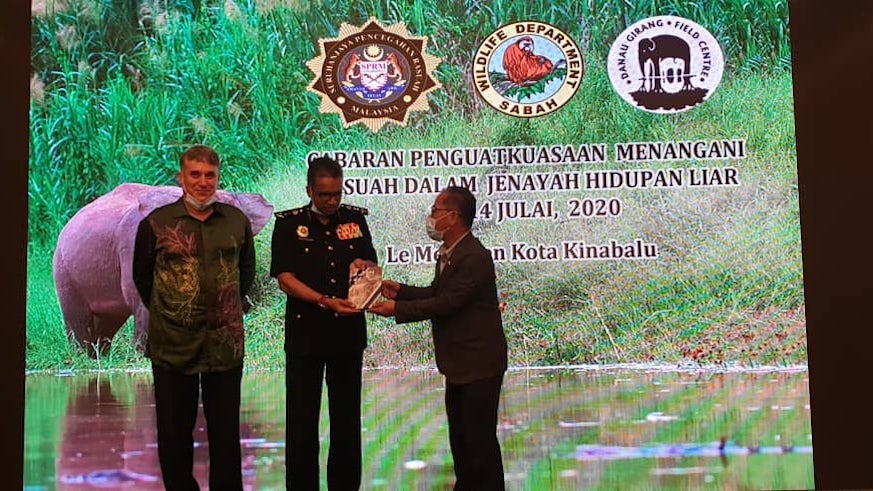Collaborating to combat wildlife crimes
30 July 2020

Sabah’s first anti-corruption workshop will help to ensure that wildlife, forest and fisheries agencies are expertly equipped to respond to wildlife crimes.
Law enforcement agencies gathered to increase awareness on anti-corruption laws, including witness and whistle blower protection, to tackle wildlife crimes in Borneo.
The workshop organised by Sabah Wildlife Department, Malaysian Anti-Corruption Commission and Danau Girang Field Centre, gave a platform to share the difficulties when witnessing and denouncing corruption.
Mr Karunanithy A/L Y. Subbiah, Director of the Malaysian Anti-Corruption Commission, said: “Worldwide, bribery in crimes involving wildlife smuggling is increasingly spreading at a worrying pace and has become one of the driving forces for illicit trade. Bribery is no longer seen as only a local problem but has evolved into trans-boundary crime phenomena.”
The workshop aimed to raises awareness for the complexity of corruption in wildlife crimes, including bribes for information on the movement of animals or patrols, obtaining rights and quotas, and avoidances of being inspected or seized.
Professor Benoit Goossens, from Cardiff University and the Director of the Danau Girang Field Centre, said: “In previous workshops, it was recognised that poaching, hunting, and illegal killing and trade, were real threats to many species in Sabah.
“The information from those workshops was included in the State Action Plans to increase the capacities of wildlife law enforcement government agencies and of key partners in conservation. In particular, to train crime analysts, investigators and intelligence gatherers, and a certified forensic technician at the Sabah Wildlife Health, Genetic and Forensic Laboratory.
“We hope that this workshop will be an opportunity to increase inter-agency collaboration and to work towards the objectives of the Wildlife State Action Plans adopted last year by the State Cabinet.”